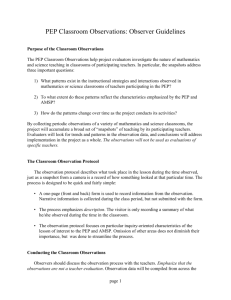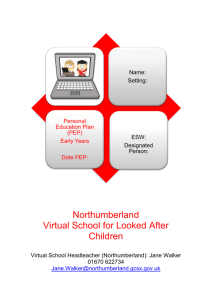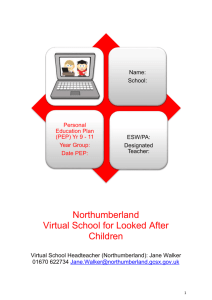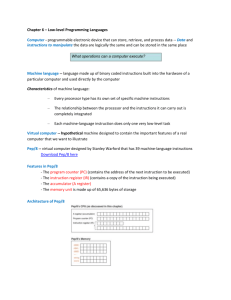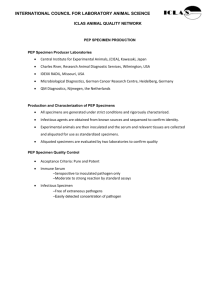Principals’ Executive Program
advertisement
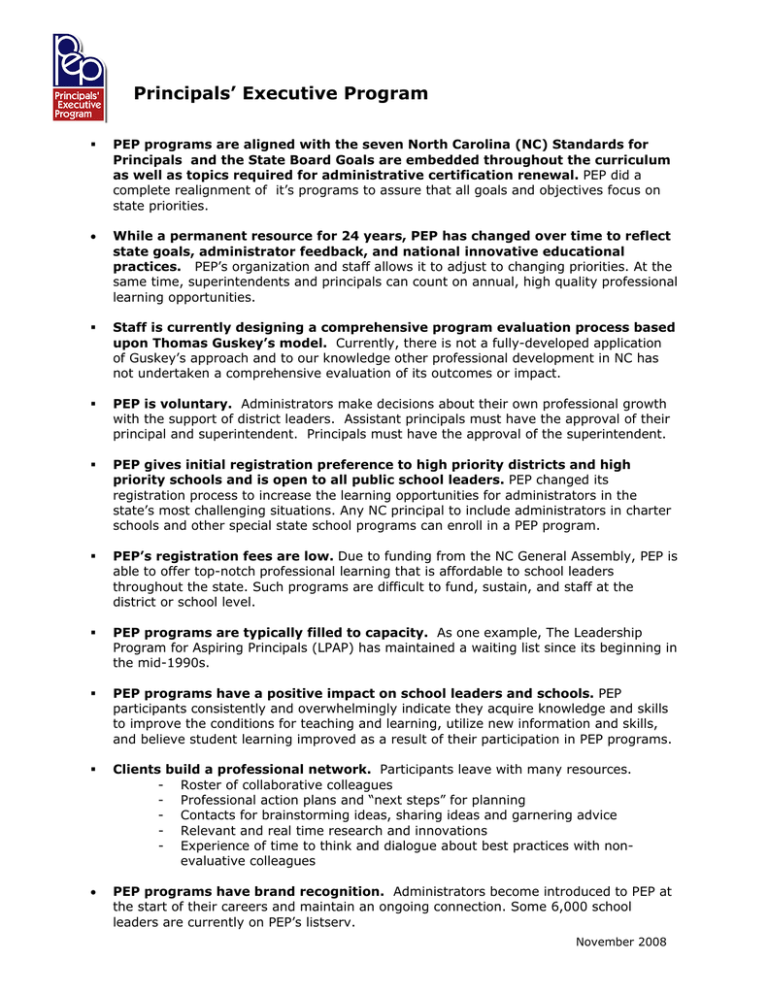
Principals’ Executive Program PEP programs are aligned with the seven North Carolina (NC) Standards for Principals and the State Board Goals are embedded throughout the curriculum as well as topics required for administrative certification renewal. PEP did a complete realignment of it’s programs to assure that all goals and objectives focus on state priorities. • While a permanent resource for 24 years, PEP has changed over time to reflect state goals, administrator feedback, and national innovative educational practices. PEP’s organization and staff allows it to adjust to changing priorities. At the same time, superintendents and principals can count on annual, high quality professional learning opportunities. Staff is currently designing a comprehensive program evaluation process based upon Thomas Guskey’s model. Currently, there is not a fully-developed application of Guskey’s approach and to our knowledge other professional development in NC has not undertaken a comprehensive evaluation of its outcomes or impact. PEP is voluntary. Administrators make decisions about their own professional growth with the support of district leaders. Assistant principals must have the approval of their principal and superintendent. Principals must have the approval of the superintendent. PEP gives initial registration preference to high priority districts and high priority schools and is open to all public school leaders. PEP changed its registration process to increase the learning opportunities for administrators in the state’s most challenging situations. Any NC principal to include administrators in charter schools and other special state school programs can enroll in a PEP program. PEP’s registration fees are low. Due to funding from the NC General Assembly, PEP is able to offer top-notch professional learning that is affordable to school leaders throughout the state. Such programs are difficult to fund, sustain, and staff at the district or school level. PEP programs are typically filled to capacity. As one example, The Leadership Program for Aspiring Principals (LPAP) has maintained a waiting list since its beginning in the mid-1990s. PEP programs have a positive impact on school leaders and schools. PEP participants consistently and overwhelmingly indicate they acquire knowledge and skills to improve the conditions for teaching and learning, utilize new information and skills, and believe student learning improved as a result of their participation in PEP programs. Clients build a professional network. Participants leave with many resources. - Roster of collaborative colleagues - Professional action plans and “next steps” for planning - Contacts for brainstorming ideas, sharing ideas and garnering advice - Relevant and real time research and innovations - Experience of time to think and dialogue about best practices with nonevaluative colleagues • PEP programs have brand recognition. Administrators become introduced to PEP at the start of their careers and maintain an ongoing connection. Some 6,000 school leaders are currently on PEP’s listserv. November 2008 Principals’ Executive Program November 2008

